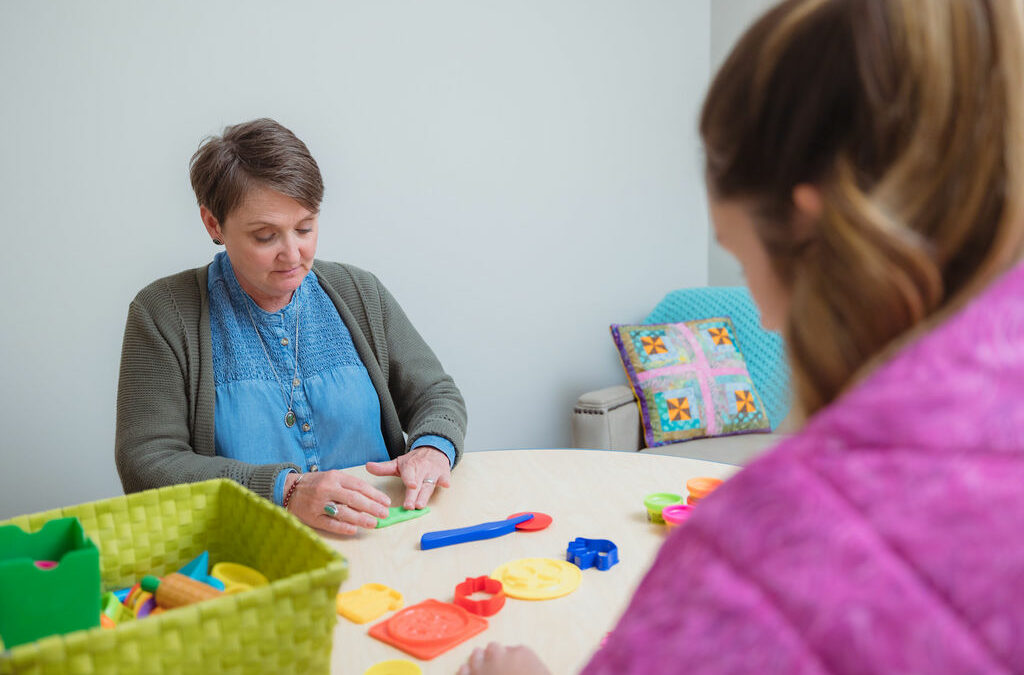The One Place Child Advocacy Center (CAC) provides multidisciplinary services to children from birth to age 17 who have experienced abuse, neglect, or violence. At the Child Advocacy Center, a child tells their story to a trained interviewer, preventing any retraumatization from occurring, and providing a safe place to start their healing journey.
During a child’s experience in the One Place CAC, they’ll work closely with a victim advocate.
What is a Victim Advocate’s Role?
A victim advocate is trained to support victims of abuse and neglect. When a child enters the One Place CAC, their victim advocate will support them from the point of initial contact, throughout the entire process, and with all interactions with the CAC.
Victim advocates work with both children and non-offending supportive parents and caregivers, walking them through crisis assessment and safety planning. They’ll offer emotional support, answer any questions, and provide referrals to necessary resources.
Victim advocates also serve as an extension of the family’s voice, advocating for them within the multidisciplinary team Through offering a safe and supportive environment, the child and family are better able to engage in the CAC process and aim for positive outcomes towards healing and justice.
How It Works
Because investigating child abuse and neglect is a complex and often confusing process, a victim advocate exists to build a trusting and meaningful relationship with the families and children served and support them throughout the investigation and intervention process.
When a family comes to the CAC, a victim advocate is the first face they see. During the initial meeting, the victim advocate will engage the child on an emotional level—asking them how they’re feeling and what kind of support they may need. The victim advocate remains present throughout the family’s CAC visit—informing and supporting them, while assessing and responding to their needs.
The victim advocate will also complete a family needs assessment with the non-offending, supportive caregiver. This assessment offers space for the victim advocate to engage with the caregiver—while identifying needs, cultural considerations, coping strategies, and barriers. During this process, the information helps the victim advocate connect the child and family to relevant services and resources.
Court Proceedings
If a case goes to prosecution, victim advocates accompany victims and their families throughout criminal justice procedures to serve as their support system and guide.
In many scenarios, families may be asked to sit in the same room with the alleged perpetrator—which can be immensely difficult. If this occurs, a victim advocate can speak to the court and inquire about a separate room for the family. A victim advocate is also allowed to bring supplies to court, which often include coloring books and markers, snacks, and water.
Benefits of Victim Advocacy
Serving as a Resource
Victim advocates serve as a wealth of knowledge, providing resources and recommendations for families in need while walking them through the process. Victim advocates guide children and families in the aftermath of crisis and trauma, providing support in pursuit of healing and justice. This guidance includes supplying information on the CAC process, explaining victim rights, and connecting families to necessary resources.
Multidisciplinary Support
The victim advocate facilitates respectful collaboration within the Multidisciplinary Team, cultivating a trauma-informed, child-centered, and family-focused approach. The victim advocate serves as the family’s representative, bringing awareness to the Multidisciplinary Team of the family’s needs, strengths, and barriers.
A Personalized Approach
During a family’s time spent in the CAC and throughout all CAC interactions, victim advocates will ask questions and provide recommendations for tailored individualized resources and referrals. This personalized, one-on-one approach provides families with the helpful information they need.
Ongoing Support
The victim advocate offers regular ongoing contact with non-offending supportive caregivers throughout the life of the case to ensure they have access to case updates and needed services. Victim advocates ensure pertinent information is passed on from the family to the Multidisciplinary Team to address family concerns or difficulties accessing services.
Learn More about the One Place Child Advocacy Center
The One Place Child Advocacy Center is home to a multidisciplinary team of professionals working in tandem to develop a coordinated strategy in support of each child.
As an accredited center by the National Children’s Alliance, our approach is based on the nationwide, evidence-based child advocacy center model.
Since opening our Child Advocacy Center in 2010, we have supported more than 3,400 cases of child abuse and neglect in Onslow County. Click here to learn more.

